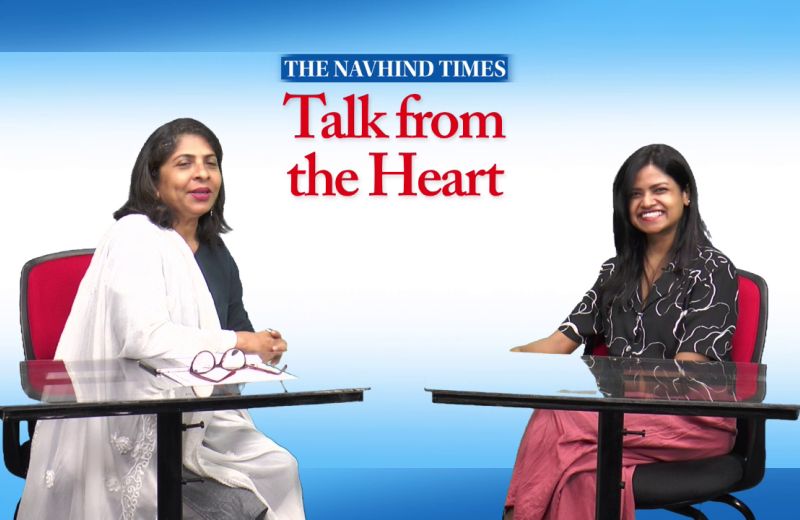
Are you aware how much you are saying to people even you are not speaking? Whether you are using words or not, you are constantly sending messages about your thoughts and feelings. To understand more about non-verbal communication and its nuances, India’s first micro-expressions decoder, body language expert and TED speaker, Kanan Tandi, was invited as a guest on the Navhind Times, Talk from the Heart show which aired live on Sunday, November 29 on the Goa 365 channel. Various topics from the importance of the right body language to the dos and don’ts were discussed in detail.
Having trained the police force, the aviation sector and other government sectors besides Corporates and students, Tandi also helps companies in their recruitment process. Recounting how she decided to take up body language as her career, she explained, “When I went to Delhi for further studies, I stumbled upon tarot reading and soon learnt that reading people’s body language is the trick to being an effectives tarot reader. That triggered my interest and the rest as one says is history.”
Gestures, posture, facial expressions, voice, speed of speech and eye contact are just some examples of body language that we utilize in our day-to- day life, she explained and added, “We all use gestures and body movements as we talk. Some use more body language more than others like the Italians and Indians. Body language can supplement and enhance the meaning of the spoken word and contribute nuances hence it is extremely important to understand the language.”
Though non-verbal communication is used the world over, however what applies in USA does not always apply in India and vice versa. “Not just across countries, but even within a country and in a diverse country like us, the differences are sometimes huge and very marked,” she said. Illustrating her point with examples, she demonstrated how though the 7 expressions are used globally; gestures differ from country to country. “A vocal phrase or syllable is limited in meaning but the same gestures can have several context based meanings that again differ from place to place,” she added.
Highlighting the crucial role of culture in the way we express ourselves through our body language, she said, “In Goa a thumbs up means good or great and basically signifies a positive feeling or emotion like, ‘Good luck’ or ‘You are number one,’ but in Kolkata, it was deemed an obscene gesture. Sometimes the meaning of these gestures change from state to state. It really is fascinating if one looks closely.”
Besides being fascinating, body language is also very powerful and has the power of making or breaking relationships and careers. Agreeing with this fact, Tandi further enumerated why body language and learning the right body language is of utmost importance. “The most important reason, I believe one should understand and learn body language is so that you can then make use of the right gestures, voice, etc to your advantage. Coming across as genuine is important in all spheres of life.”
The peculiar and unique Indian head shake, wobble or bobble as it is called, is a source of much confusion to foreigners. Tandi who has written an article about it, on the invitation of world renowned body language expert and trainer, Mark Bowden; threw some light on the topic. She shared, It is definitely an Indian gesture and found mainly in the southern states. It signifies ‘okay’ more than a ‘yes’ or ‘no’. The more the person agrees the more is the wobble.
Several questions were asked by viewers and one particular observation which was very pertinent was that people should be particular about their body language while socializing. “The most important aspect in this scenario is personal space and distancing. Eye-contact is the second point that we should be careful about,” stated Tandi and gave a personal incident to exemplify the point.
The talk was extremely informative and interactive as Tandi answered as many of the viewer’s questions as possible. Various tips were also shared to make body language an effective tool in clear and good communication.



